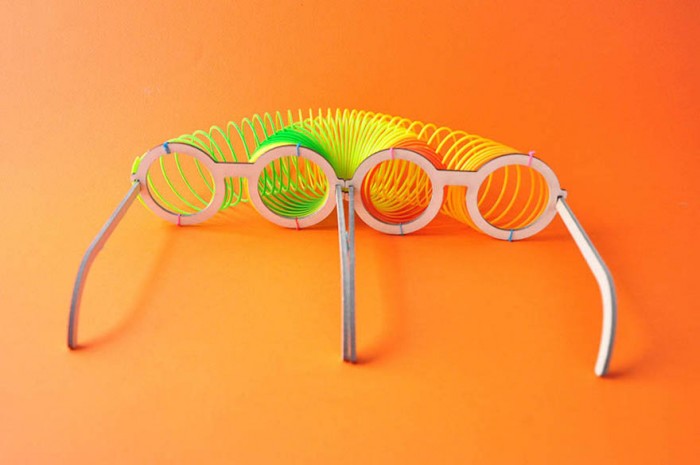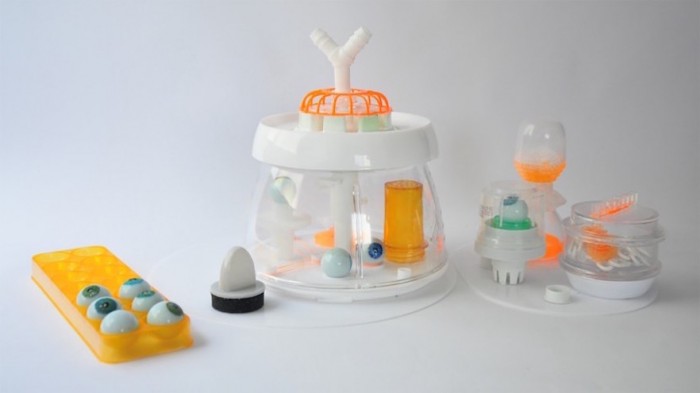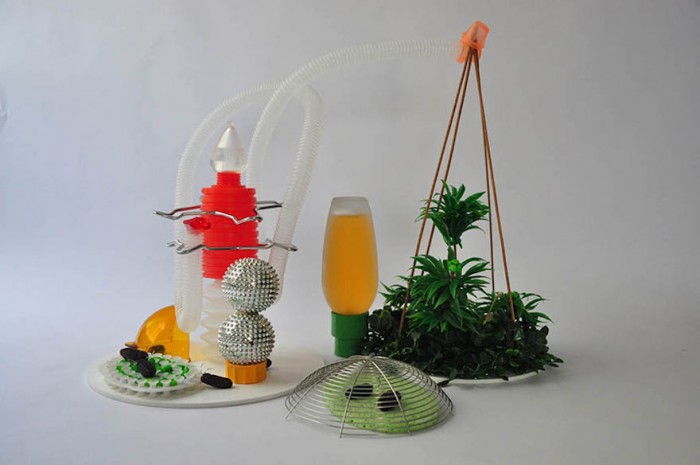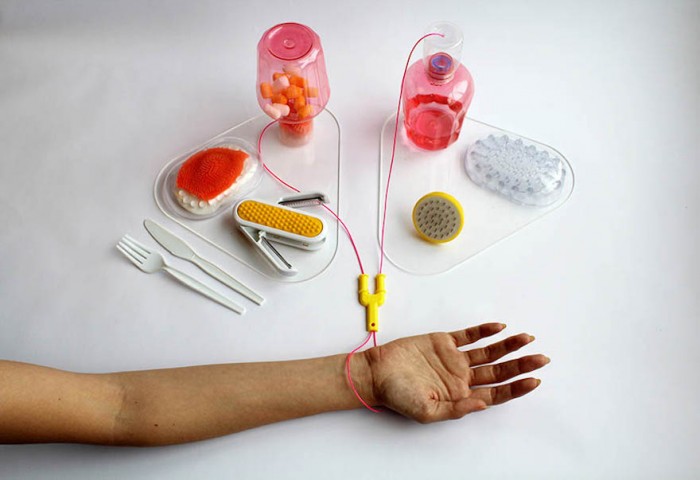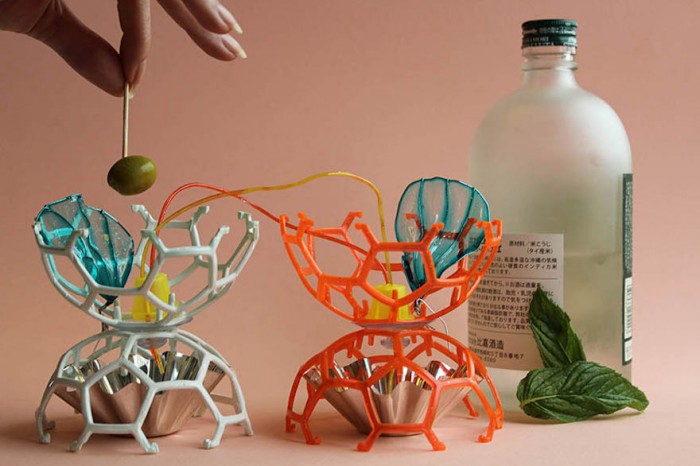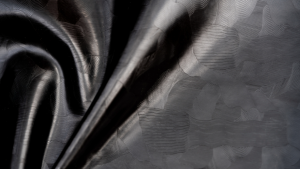Stories, both books and film, have a way of predicting the future – from The Simpsons predicting Donald Trump’s presidency to I, Robot’s driverless cars. By this theme, if one human can dream it up, another can make it a reality. So in today’s age of digital anxiety, ethical machines and DIY-currencies, what will be the next big invention? Students from five Lebanese universities put together a few weird possibilities as part of Beirut Design Week’s Speculative Needs exhibition, a look at the products that the humans of tomorrow may not be able to go without.
Face Brace
This apparatus keeps your face from permanently looking down at your smartphone because we have no real self-control when it comes to likes and retweets. It's not as far-fetched as it seems.
Eye Kit
From designer babies or deleting harmful mutations from our genome, the ethics of re-designing our genes is a divisive topic for many. But what if it was as easy as slipping a new gene into your genetic make-up through your eyes?
SuperRoach
Also bringing the lab to the home, the SuperRoach lab helps its users genetically modify and train roaches to clean food because they need to pull their own weight if they're going to live with us.
Eat Yourself
Responding to the food shortages of the future, Eat Yourself is a kit for harvesting edible fungi from the body itself. Farm to table and skin to mouth. It's not unheard of.
Martini de Hormones
Would we understand the “other” if we were drinking the thing that makes them unique? This kit builds empathy among people by allowing them to mix their hormones into cocktails.
These are just some of the speculative fictions the students created while responding to the brief from MENA Design Research Centre, a non-profit organisation and the founders of Beirut Design Week. The students imagined products based on their observations about technology, society and the environment today. The materials for their quirky creations were bought from a $1 store, giving them a playful feel.
"The universities were not equipped with facilities that would allow them to print in 3D, cut with lasers, work with metal or plastic to create objects. For this reason, we had to find a way to get interesting materials for them at low cost. We explore dollar stores in the city, looking for objects that can be separated and reused,” said the curator of the exhibition Tatiana Toutikian.
Now in its sixth consecutive year, Beirut Design Week took place in May. It showcases the best of Lebanese and international design with the goal to encourage intercultural exchange, design education, social impact, and design entrepreneurship.

